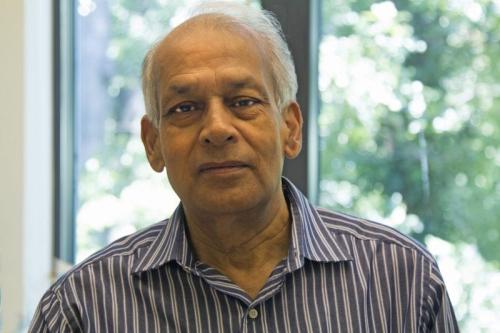
Learn the economic foundations of tax policy, tax incentives, international taxation, and statistical and revenue forecasting techniques needed to implement successful tax reforms to enhance revenues, improve the equity and efficiency of taxes, and promote economic growth.
Our Tax Policy for Practitioners (TPP) program spans four weeks and delves into all major taxation policies, including value-added taxes, personal and corporate income taxes, excises, carbon taxes, property tax, trade taxes, and taxes on natural resources. Following a comprehensive introduction to the design of these diverse taxes, participants are trained to apply macroeconomic models, micro-simulation models and typical taxpayer models to design tax policies. To enhance the learning experience, program faculty offer personalized feedback and guidance to each participant, assisting them in the use of these models and in the preparation and presentation of policy proposals under different settings.
The TPP (previously TARF) program has been running for more than 20 years with alumni from over 60 countries. Past participants have been from Ministries of Finance and Tax Administrations from all regions of the Globe as well as from the World Bank and U.N. Agencies. Our faculty have also customized this program for individual government ministries in Africa, Asia, Europe, Latin America and the Middle East.
About the Program
Our program trains participants on all major taxation policies and prepares participants for new developments in taxation arising from greater globalization and the digital economy. By the end of this program, participants will learn how to:
- Design tax policies to maximize revenue in a sustainable manner.
- Estimate how tax policies impact different income groups.
- Assess the effectiveness of different tax policies.
In line with these program objectives, participants will engage in comprehensive sessions on tax policy analysis throughout the four-week program. In Week 3, participants will have the opportunity to tailor their experience by selecting one of three specialized tracks: Revenue Forecasting, Tax Incentives and Tax Expenditures, or International Taxation, allowing for a deeper dive into their area of interest.
Topics covered
Tax Policy Analysis
- Principles of taxation and tax reform
- Tax incentives
- Economic impact of taxes and subsidies
- Consumption and expenditure taxes
- Principles of international taxation
- Wealth and asset taxation & property and real estate taxes
- Taxation of natural resources
- Taxation of financial sectors
- Inflation and taxation
- Taxation of e-commerce and the digital economy
- Taxation of MNCs and BEPS
- Tax and climate change
- Tax incidence
Track I: Revenue Forecasting
- Macroeconomic forecasting models
- Microsimulation models
- Regression based models
- Machine learning models
- Forecasting revenues for:
- Value-added and excise taxes
- Customs duty and other trade taxes
- Personal income taxes
- Corporate income taxes
- Taxes on natural resources
- Property taxes
Track II: Tax Incentives / Tax Expenditures
- Cost-benefit analysis of tax incentives
- Tax expenditure estimation (income taxes and VAT)
- Tax competition and design of tax incentives
- Tax incentives for research and development
- Global minimum tax and tax incentives policy (combined with International Taxation track)
Track III: International Taxation
- Overview of tax treaties and international tax avoidance
- Transfer pricing and international dispute resolution
- Base erosion and profit shifting project
- Global Pillar I
- Global Pillar II
- Global minimum tax and tax incentives policy (combined with Tax Incentives / Tax Expenditures track)
This training program is open to individuals working professionally in tax policy, tax administration, economics, finance, accounting, management or other related fields. These include:
- Public and private sector executives
- Officials of revenue authorities and ministries of finance
- Professionals in multilateral and regional banks
- Consultants assisting decision makers in public and private sectors
Tuition for the TPP program is $11,000.
Tuition and fees cover:
- Faculty instruction from Duke faculty and expert guest speakers from the World Bank, IMF, etc.
- 3-Star hotel accommodations with in-suite kitchenette and free breakfast
- Transportation for all program-related activities
- All course materials and resources
- Use of a laptop computer
- Emergency medical insurance
Tuition does not cover airfare, meals, or incidental expenses, as those vary from person to person.
DCID’s team has a decades-long history of supporting capacity building efforts with partners around the world. Past partners for custom versions of our Tax Policy for Practitioners program have included foreign governments, development banks and multilateral institutions. Our team works with partners to customize a training program’s content and duration based on partner needs. To further ensure a customized training program meets a partner’s need, we are able to deliver programming virtually or in off-campus locations, including Duke University’s downtown Washington, D.C. office.
Program Co-Directors
Supporting Faculty
Peter Barnes
Senior Fellow
Roy Kelly
Professor of the Practice Emeritus
Cory Krupp
Professor of the Practice
Sanjay Kumar
Senior Fellow
Richard Schmalbeck
Simpson Thacher & Bartlett Distinguished Professor of Law
The program has something for everybody, from tax administrators to policy makers to academics. My experience at Duke opened my eyes about my own country… My view of the world will never be the same.
Patrick Kambewa, TPP participant
